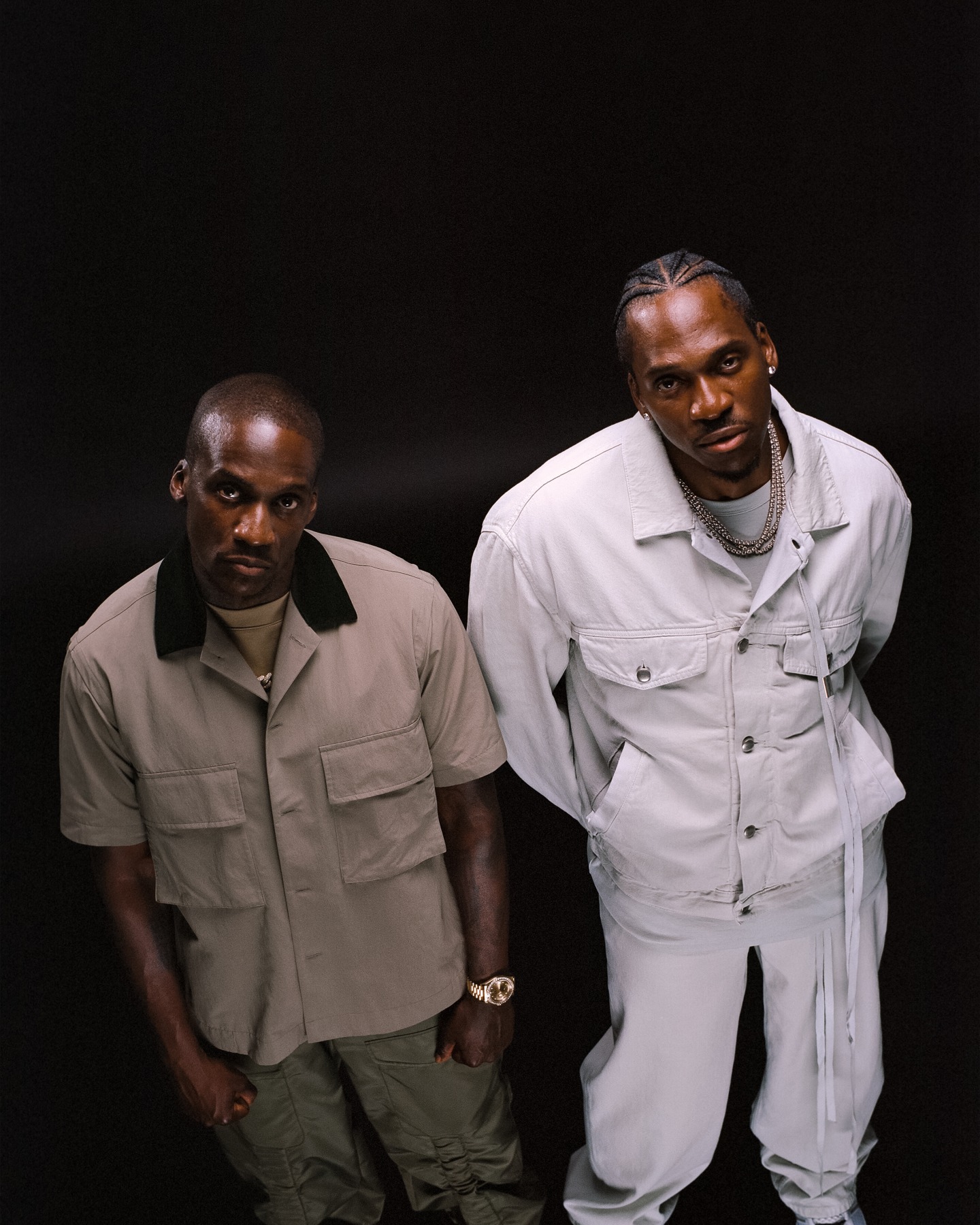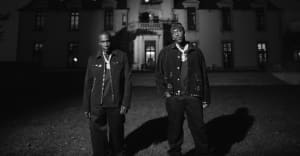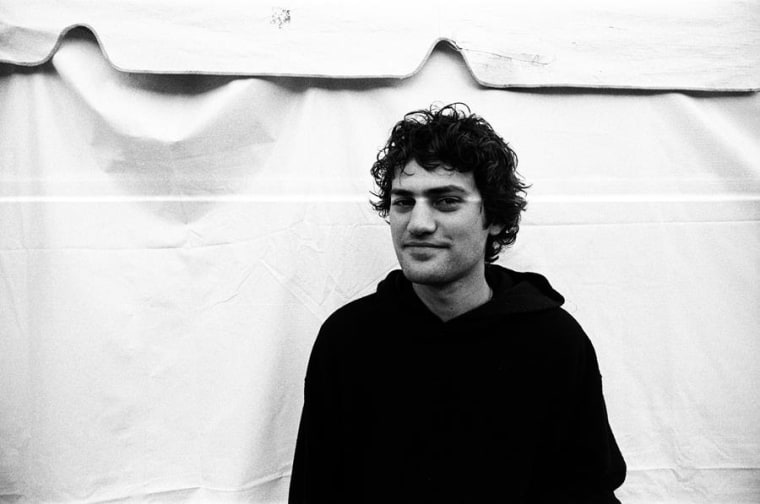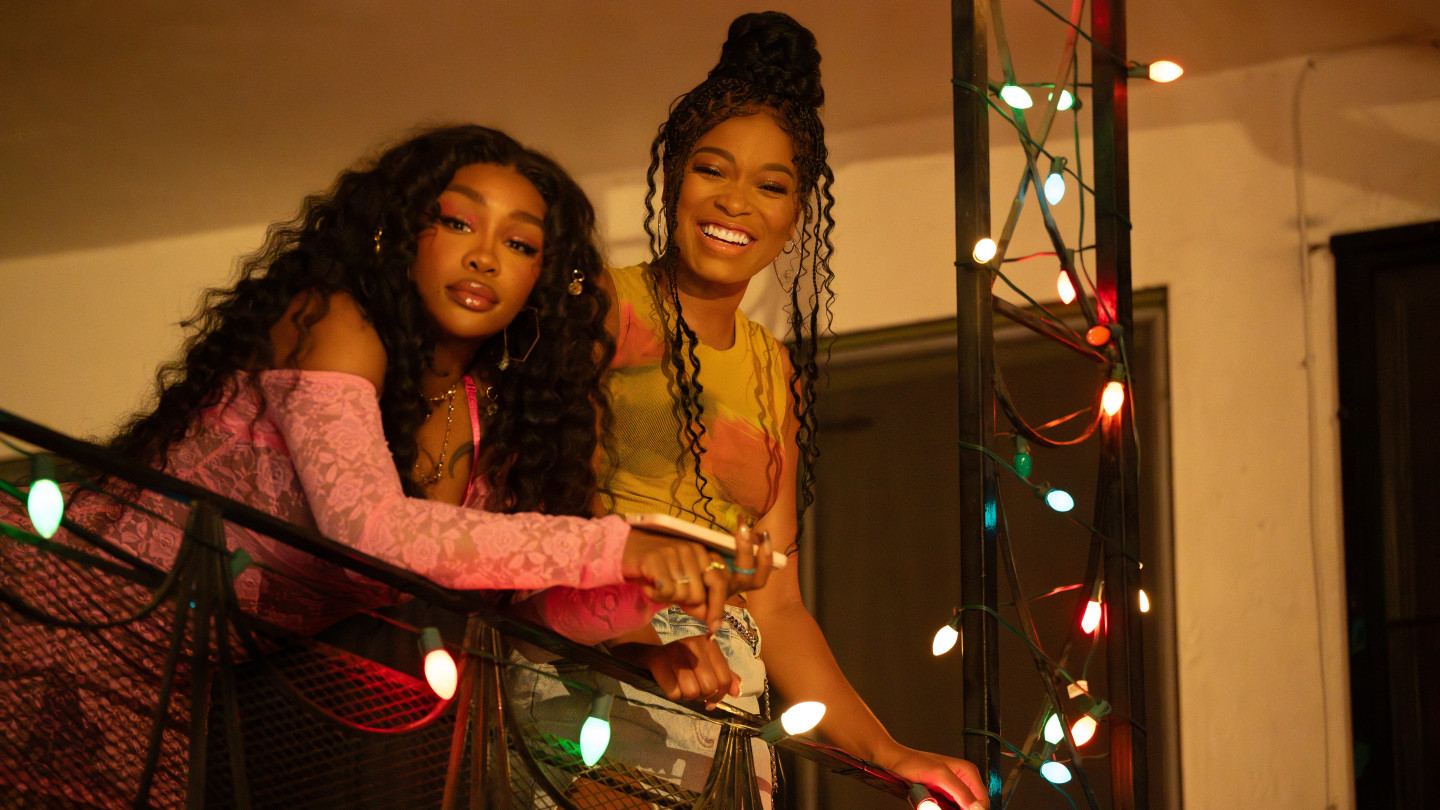Let God Sort Em Out”>
Clipse. Photo by Cian Moore.
Clipse’s magic came from competition. The two brothers, Malice and Pusha T, rapped like each bar was their last sentence on earth — who, each song asked implicitly, would the listener remember? Their dynamic gave a brighter flash and more bitter venom to the details of drug dealing from their family home in Virginia, and made shoulda-been charttoppers produced by the Neptunes at their peak pop a little brighter. But from the beginning they also shared with the greats a self-knowledge and preoccupation with legacy. It’s why Malice left the group in 2009, disgusted with the industry and called to be a disciple of Christ instead of the street. It’s also how, in Pusha T’s subsequent solo career, he took on two of the most successful rappers in history, and won. A principled pen is not just mightier than the sword, it’s unstoppable.
Of course, priorities can change. Always the more ruminative rapper in Clipse, Malice spent nearly a decade and a half disavowing his work in Clipse as blasphemous; as he returns to the group for their fourth album Let God Sort Em Out, Malice is Jacob wrestling with the angel, reconciling his faith with his first earthly calling. This is the emotional core of the album that allows both Pusha T and Malice drape themselves in their mortality like never before, exposing new traumas, personal shortcomings, and grief. The shift is a daring move that will prompt deeper listens of their entire catalogue, and produces a solid, occasionally brilliant project in its own right.
The new direction is apparent from the jump. “Birds Don’t Sing” reintroduces Clipse with a curve ball, opting for elegiac gospel-rap with a hook from John Legend. It doesn’t feel like Malice and Pusha T on the track so much as Gene and Terrence Thornton, two sons grieving the deaths of their parents. As stirring as it is to hear Pusha T turn over his mother’s final days in his mind, Malice’s verse is literally revelatory in its tracing of how his late, beloved father inspired him to return to rapping: “The way you spelled it out, there’s an ‘L’ in every lesson / You owe it to the world, let your mess become your message.” Any fears that the comeback is a cynical moneygrab or sonic regression dissolve with the final surge of strings and choral harmonies.
Across Let God Sort Em Out, both rappers are eager to dig their perfectly manicured nails into the muck of past sins and present contradictions. Lead singles “So Be It” and “Ace Trumpets” instantly became two of the best rap songs of the year by doubling down on what made Clipse great: The songs are documents of the duo’s treacherous climb to the top of the food chain packed with painstaking detail and sinister double entendres. Flashing bemused snarls at the rappers who try to sit at their table, Pusha and Malice flex their diligent study of Jay-Z and Biggie as they thread rhymes together until they form an abstract Cuban link, each syllable glimmering with the light from the last like a diamond: “When I was born, grandmama could see it / I be Bentley driven and very strategic / R.M. sleeve, no diamonds are needed / Floors are heated, so be it, so be it.”
This effortless synchronicity doesn’t extend to all of the featured artists. There are bright moments, like Kendrick Lamar and Tyler, the Creator getting into “unapologetic villain” mode on their respective songs. However, Nas’s appearance on “Let God Sort Em Out / Chandeliers” feels like Clipse hurrying to get a photo next to the Mona Lisa before the Louvre closes. Pharrell, who has always felt like an honorary third member, contributes vocals on four songs, and he’s charming when he’s in his trademark pocket of swaggy psychedelia (“E.B.I.T.D.A”) or preaching from a braggadocious pulpit, Righteous Gemstones style (“So Far Ahead”).
He’s less convincing on “All Things Considered,” the album’s most confounding misstep. It’s jarring to hear Pusha and Malice expound on their struggles as though from the comfort of a psychiatrist’s couch only for Pharrell to pipe up on the hook about the luxuries that make his life “so awesome.” And then there’s the concluding verse from Terius Nash a.k.a. The-Dream, the pop R&B force who was sued in 2024 by a former protégé for rape and sexual battery. Nash’s inclusion is troubling on its own but his verse feels even more bitter and ugly in the context of his legal troubles: “They’ll come for your king, but the throne survives / Unleash the queen, take him dead or alive,” he hums at one point. His presence adds nothing and only serves to mire Clipse in a different mess that distracts from their art.
Fortunately, the album’s beats don’t suffer from the same issues. Let God Sort Em Out is the first Clipse album not to be produced by the Neptunes; after a falling out with Chad Hugo, Pharrell handles the project by himself. The stripped-down, spacey, and mildly cartoonish flavor of the beats on Lord Willin and Hell Hath No Fury remains a classic, but Pharrell isn’t interested in a nostalgia trip. Instead he takes that spirit and makes it grander, more befitting the stature of kings than hungry challengers.
This mostly works: the cinematic spaghetti western drumline of “Inglorious Bastards” starts silly but ends up inspired, and “E.B.I.T.D.A.” is sun-dappled Roy Ayers-ian luxury. There’s also plenty of red meat for day-one fans, like the masterful sampling on “So Be It” that turns a composition from Saudi Arabian musician Talal Maddah into a hypnotic bop that weaves like a Great White, or the synths that scream like fallen angels all over “By The Grace of God.”
Created with the awareness that no rap duo since has captured their same dynamic energy and hunger, Let God Sort Em Out aims to cement Clipse in the pantheon. There are moments where you can see Clipse striving for their place, revealing the stitchings in their fine garments as they stretch their arms towards glory. But it’s the humans underneath the robes that are the album’s true focus, and it’s their candor that makes the music impressive, even by Clipse’s considerable standards, rather than merely adequate. Humanity is not sacrificed for style on Let God Sort Em Out; instead, it’s revealed as its sibling, occasionally messy but always true.





